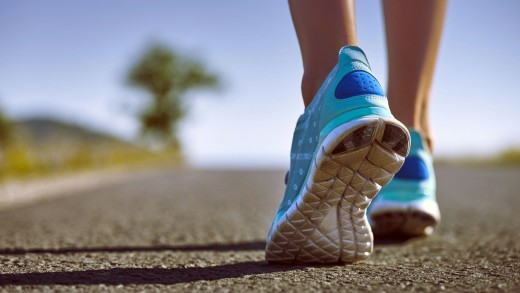
Running
So, we will have “a deep discussion” about this topic now.
Firstly, let’s start discussing about the surface on which to run. We believe that it is very important to perform the running training on the surface that allows us to optimize our work minimizing “the collateral effects”.
Definitely, if the surface area is too hard as CONCRETE or ASPHALT, it will create more stress on the joints (Ankles, knees, hips, lower back). Moreover, these hard surfaces (cement and asfalt) mostly have a very excessive grip that doesn’t allow our foot to have a small “slides” – adjustments that defend our joints from constant annoying torsions.
Often people speak about running on the beach but on dry and soft sand where running involves muscles too much and the feet absolutely aren’t reactive (the long contact with the ground).
The ideal choice for running can be GRASS or a LAWN. It’s a smooth, compact and soft surface. A good golf surface, football pitch or simply a city park (if the park is in good condition) would be the best solution.
The surface is not so hard and can guarantee a good amortization. The grip is not so excessive and, if the grass is not too wet, the necessary “slide” could be perfect.
In some situations, if any of these solutions are not available, the remaining solution, simple and available very quickly would be your gym where you make your volleyball trainings. The atmosphere very friendly and well-known.
Let’s speak about the heart rate during the training session.
In volleyball, it is very important the capacity to recover between one try (short and intense) and the next try. The volleyball player’s heart should be in condition to recover very fast.
Regarding this, with the discontinuous method we want to train exactly this capacity.
The player’s heart rate is measured by the classic manual way (counting heart beats with your fingers on your neck) or even better using stopwatch if available.
With a discontinuous method, after a long period of running, the heart rate should be very high. Surely over 160/minute. Or even 185-190.
At the end of the set, good recovery means coming back to 120 beats per minute in about 90s time.
It’s all about pushing the heartbeat on very high level, maximum or submaximum (theoretically, the maximum heartbeat is calculated by subtracting the number of the years of the player from 220: a player at the age of 30 should have a maximum heartbeat of 220-30=190beats per minute) and then making it lower and lower during each next training in shorter and shorter periods of time.
Enjoy running!
If you’re unsure or want more advice about the training you’re doing, make sure you ask questions in the comments below and share your training videos with us on social media Twitter, Facebook and Instagram using hashtag #volleyworkout, so we can keep advising you and help you get the most from your training!
Do not miss to read Gym Week 1 program article of Gary Hutt and Water exercises of Eduardo Romero.
** WorldofVolley advises that whilst completing this program you are supervised by appropriately qualified support staff and follow all guidelines set out by as closely as possible. In exercise, excellent technique is essential, particularly during situations involving external load. WorldofVolley don’t accept liability for health and safety during the completion of this program. Please ensure you complete this program sensibly within the bounds of the risk assessment of the facility you train at. **
Read previous article WoV Preseason Workout 2016 – Gym, Running and Water exercises and General introductions article as well.
Check out more Fitness articles.
Receive email notification (FOLLOW) about players‘ and teams’ latest STATS and VIDEOS (you need to be registered).
Subscribe to have full access on WoV PROFILES, STATS & VIDEO data base.
To back in front page of news click on News.